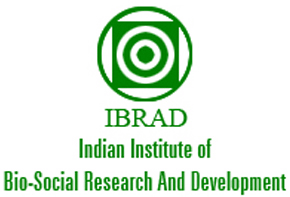SEPARN (Socio-Ecological Participatory Action Research Network)
Preamble
The challenging issues of the Food Security and Food Safety cannot be addressed by a single discipline of study. The professionals from the “Biological and the Agricultural science” will study and explore the biological factors of food production whereas the professionals from social science will explain the social institutions, cultural practices which has a direct effect on food production and consumption. The economists, of course, have different expertise in the studies of production-distribution -consumption aspects of food security and safety. However, the issue of food security and food safety requires a transdisciplinary approach to develop a coherent and comprehensive body of knowledge.
In view of the need to form a network of transdisciplinary professionals, we from IBRAD have formed a group of transdisciplinary professionals for periodical discussion, sharing case studies and methods.
Understanding the socio-ecological processes: The importance of transdisciplinary approaches
Social institutions with the cultural practices of human society and interacting ecosystem dynamics determine the quality and quantity of production of agriculture and allied activities as one of the provisioning ecosystem services. On the other hand functioning of the ecosystem will determine the sustainability of the ecosystem services.
The knowledge, attitude, and socialization of the community determine the nature of farming practices they would adopt. Whether the community would follow the sustainable agricultural practices of mixed farming, apply organic manure with multiple species management, crop rotation, pulse cultivation depends upon the social system in the framework of the ecosystem.
The farming system is an interwoven socio-ecological process as a natural phenomenon for sustainable food production.
It is very fascinating to see how traditional practices of some communities have the ability to reduce social-ecological crises particularly risk mitigation in the events of some natural disturbance.
Interestingly, social scientists study how the process of socialization and rituals help in the transmission of ecological knowledge.
But understanding of the dynamics of the ecological process becomes the super specialization of the ecologists and has rare occasions to share the importance of ecological indicators like keystone, rare and extinct, threatened species which are indicators of sustainable ecosystem with social scientists. Anthropologists study the taboo as social institutions as “prohibition”. Imposing taboo on harvesting some bunch of vegetation helps in resource conservation such as conservation of Sacred Grove, but the Anthropologists do not cross the boundary to understand how the importance of keystone species of the ecosystem which help in maintaining the ecosystem as a whole. Anthropologists do not study the dynamics of sacred groove management. Same way, ecologists do not make use of the concept of taboo in Participatory Biodiversity Management.
Understanding the dynamics of Socio-Ecological Processes can help better in the manipulation of culture with better, local management practices by developing appropriate social institutions for sustainable ecosystem services, food being one of them.
SEPARN Network
In view of the need for a network of transdisciplinary professionals for periodical discussion, sharing case studies, participatory action research methods the SEPARN (Socio-Ecological Participatory Action Research Network) is formed with founder members from Finland, Belgium, Germany, Hungary, UK, Bangladesh and India.
The professionals in the network represent various geographical locations and socio-cultural fabrics from different parts of the world. What is interesting is the fact that in all most all the cases the members are pursuing their activities as a group of transdisciplinary professionals which is why they have experience in understanding the “Socio-Ecological” processes that influence the structure and function of the natural ecosystems which often represents a mosaic landscape and their associated ecosystem services that determine the capacity of food production, livelihood options and wellbeing of the people.
Purpose of formation of SEPARN
- Understanding the socio-ecological systems that govern the process of food production and consumption in a given landscape
- Share experience of any intervention to arrest the resource depletion, environmental degradation, and climate change adaptation that have been found effective
- Share the experiences in agroecology that are on-farm, participatory, change-oriented, and backed by broad-based methodologies of sustainability analysis and evaluation.
- Share the field-tested innovative methods and practices grounded in ecological understanding, conservation-based organic farming and other alternative systems of sustainable agriculture at the multifunctional landscapes
- Discuss the criteria and indicators of sustainability, issue of Trade-Offs of conservation and environmental services, sustainable agriculture and global climate change.
- We will have the opportunity to share the book reviews, research papers, and topical reviews.
- Share the national and international coverage and featured articles based on interdisciplinary and transdisciplinary studies.
International Meetings
- The first pre-launch meeting of SEPARN was held on 22nd June 2020 with 33 participants from the U.K., Finland, Hungary, Belgium, Germany, USA, Italy, Kenya, Bangladesh and India.
- The second webinar of SEPRAN was held on the 30th September 2020 with 41 participants from Finland, U.K., Belgium, Hungary, Bangladesh and India.
- The Third International Conference on Socio-Ecological Process for Sustainable Development – Indigenous Tribal Communities, in particular, was held on 18th February with speakers from Belgium, Germany, Hungary and India
- The fourth International Conference on nature-based solutions, ecosystem restoration and sustainable livelihood in the context of SDGs” was held on 23rd September 2021 with speakers from the UK, Finland and Belgium.



